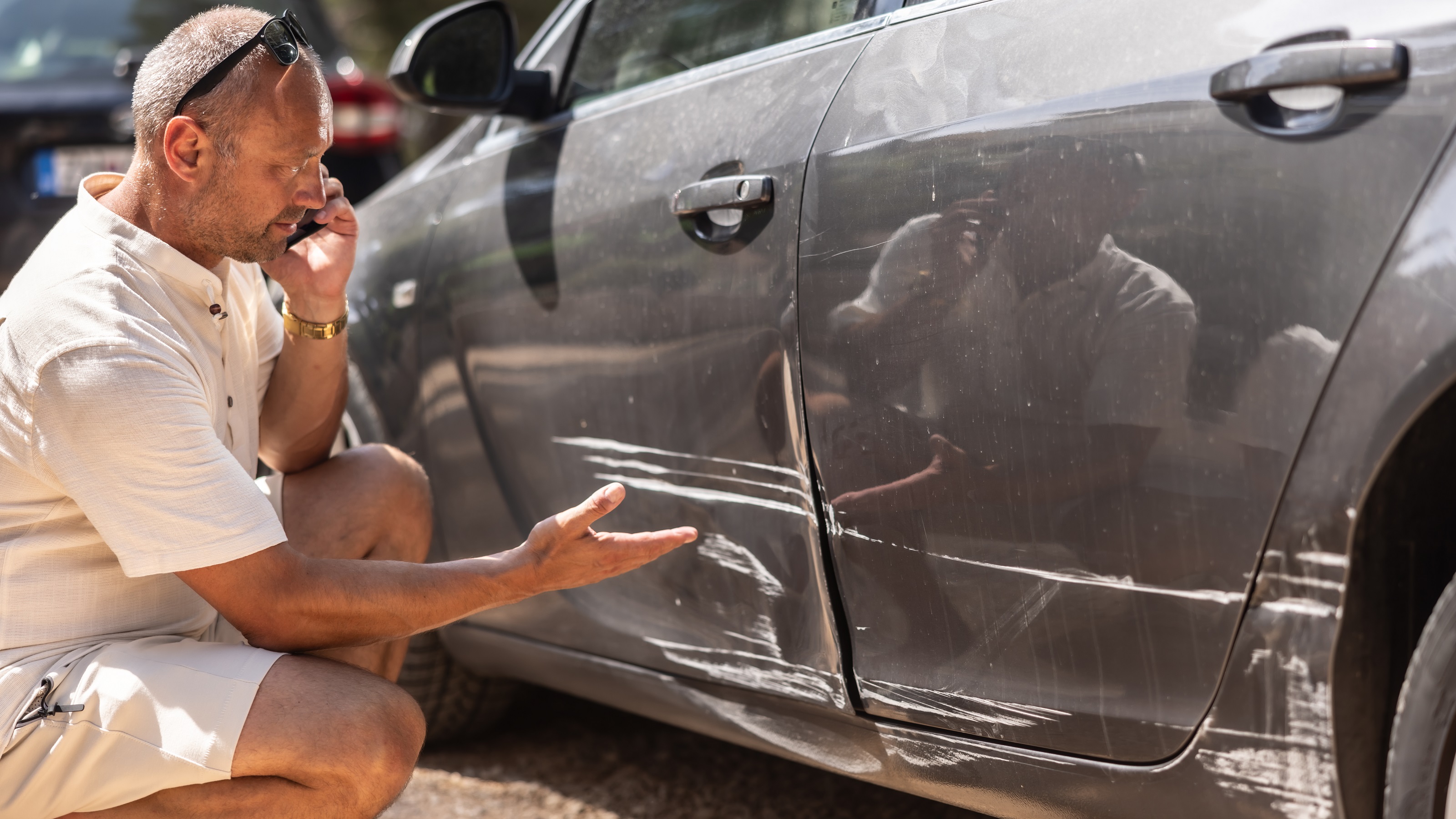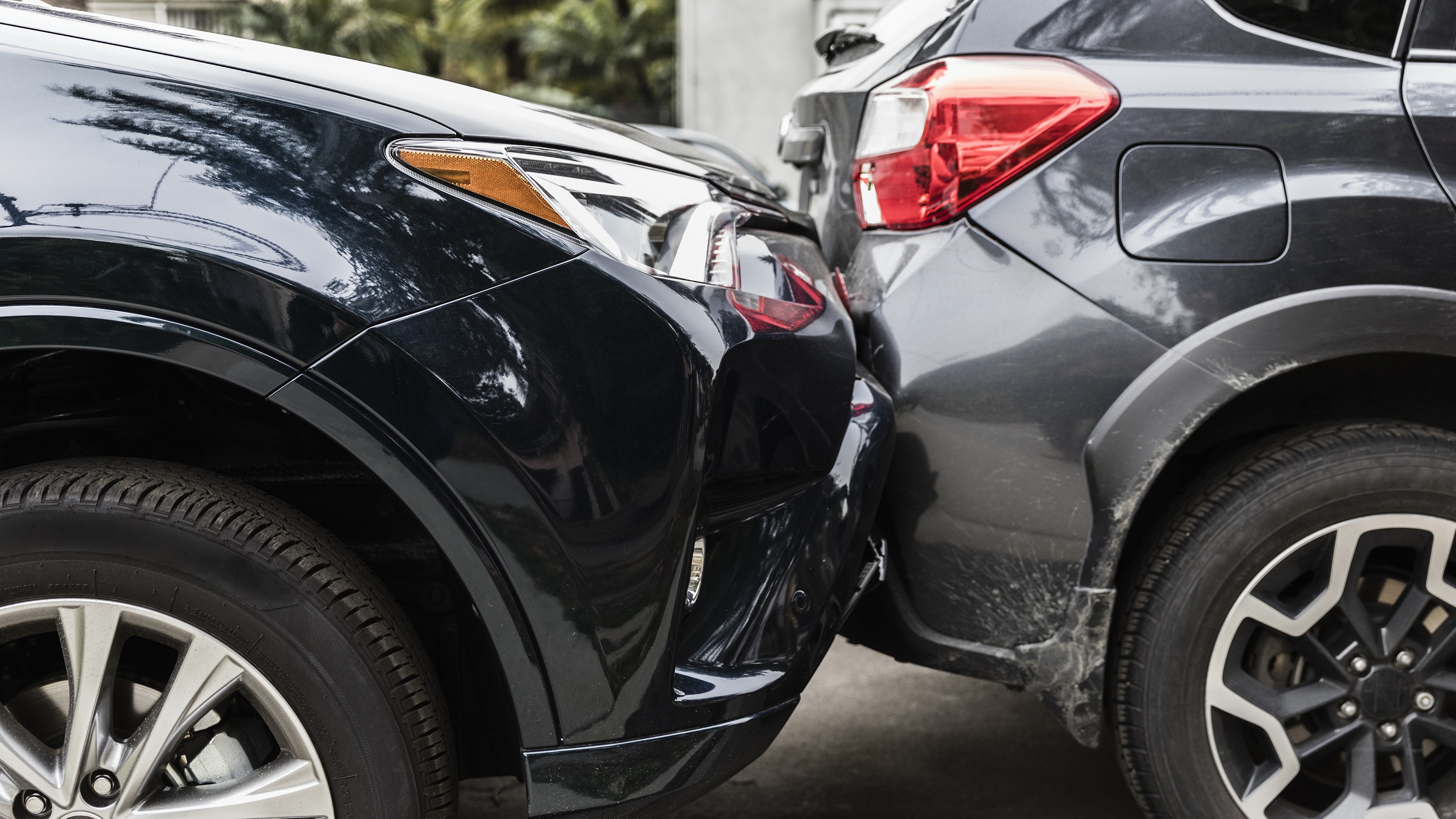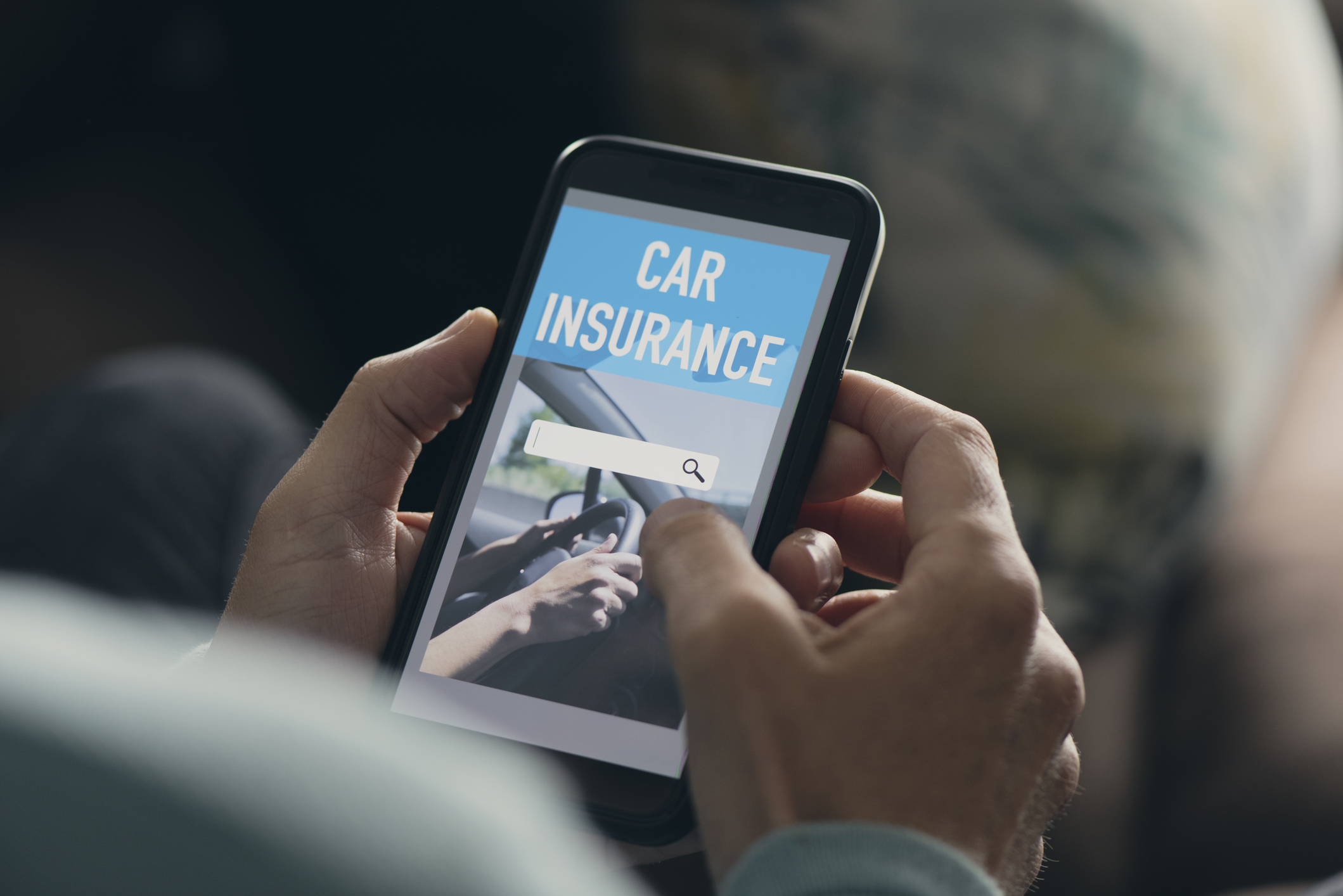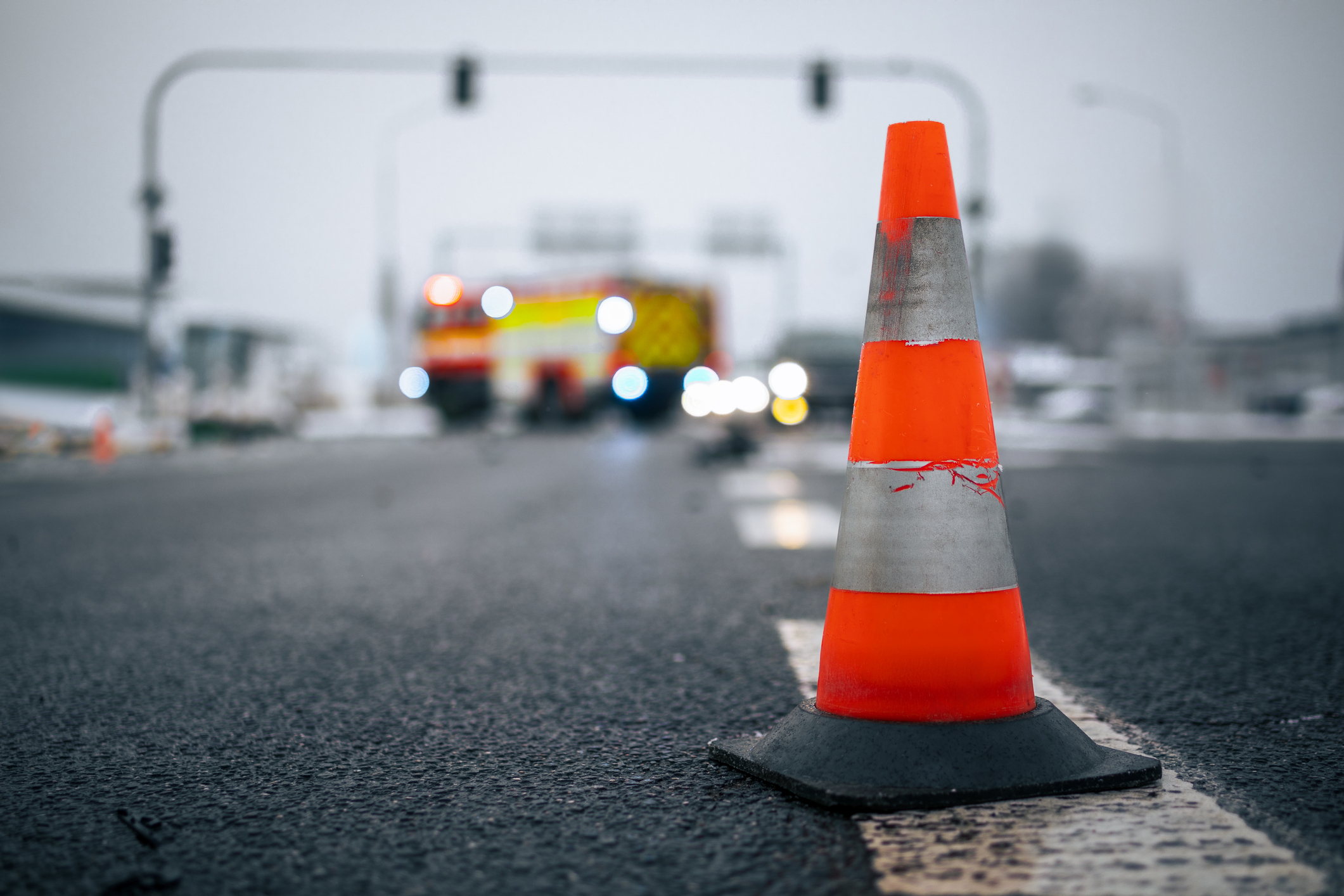What Is Comprehensive Auto Insurance and What Does It Cover?
Do you need comprehensive auto insurance? This grab bag of coverages can protect you and your vehicle from theft, fire and forces of nature.


Profit and prosper with the best of Kiplinger's advice on investing, taxes, retirement, personal finance and much more. Delivered daily. Enter your email in the box and click Sign Me Up.
You are now subscribed
Your newsletter sign-up was successful
Want to add more newsletters?

Delivered daily
Kiplinger Today
Profit and prosper with the best of Kiplinger's advice on investing, taxes, retirement, personal finance and much more delivered daily. Smart money moves start here.

Sent five days a week
Kiplinger A Step Ahead
Get practical help to make better financial decisions in your everyday life, from spending to savings on top deals.

Delivered daily
Kiplinger Closing Bell
Get today's biggest financial and investing headlines delivered to your inbox every day the U.S. stock market is open.

Sent twice a week
Kiplinger Adviser Intel
Financial pros across the country share best practices and fresh tactics to preserve and grow your wealth.

Delivered weekly
Kiplinger Tax Tips
Trim your federal and state tax bills with practical tax-planning and tax-cutting strategies.

Sent twice a week
Kiplinger Retirement Tips
Your twice-a-week guide to planning and enjoying a financially secure and richly rewarding retirement

Sent bimonthly.
Kiplinger Adviser Angle
Insights for advisers, wealth managers and other financial professionals.

Sent twice a week
Kiplinger Investing Weekly
Your twice-a-week roundup of promising stocks, funds, companies and industries you should consider, ones you should avoid, and why.

Sent weekly for six weeks
Kiplinger Invest for Retirement
Your step-by-step six-part series on how to invest for retirement, from devising a successful strategy to exactly which investments to choose.
With car insurance rates forecasted to increase 7% on average this year, tacking on optional coverage like comprehensive insurance might feel like an unnecessary added expense. That's especially true for drivers in states that already saw rates jump over 50% in 2024. While there are a few ways to save on insurance premiums, cutting comprehensive car insurance might not be a risk worth taking.
Comprehensive insurance coverage is optional coverage that protects you against damage to your vehicle caused by non-collision events that are outside of your control. The uptick of extreme weather events has increased the chances of wind, rain, flying debris and flood waters causing damage to your car. You don’t want to be caught short when the next storm rolls though.
When shopping for and pricing comprehensive car insurance, remember that this coverage is not a separate type of car insurance policy. Instead, it refers to a specific coverage option on an existing policy.
From just $107.88 $24.99 for Kiplinger Personal Finance
Become a smarter, better informed investor. Subscribe from just $107.88 $24.99, plus get up to 4 Special Issues

Sign up for Kiplinger’s Free Newsletters
Profit and prosper with the best of expert advice on investing, taxes, retirement, personal finance and more - straight to your e-mail.
Profit and prosper with the best of expert advice - straight to your e-mail.
What is comprehensive car insurance?
You'd think that the combination of liability, collision and uninsured/underinsured motorist coverage would seem to take care of all conceivable risks to drivers — but it doesn’t. None of that other car insurance would cover damage to your car from a falling tree, a collapsing parking garage or your neighbors' kids playing baseball. Comprehensive insurance is a car insurance policy that covers certain damages to your vehicle that are not caused by a collision with another car.
For instance, imagine you leave for school in the morning and as you’re driving, you are hit by a frightened deer that damages your front-end and breaks a headlight. Is this an accident covered under your basic required auto insurance? Not a chance. This is the type of one-off accident that comprehensive car insurance would cover.
Comprehensive auto insurance is supplementary, meaning it’s usually an optional coverage that can be added to an insurance policy. This coverage is usually required if you are leasing or financing your car.
What does comprehensive car insurance cover?
Here are a few types of damage that may be covered by comprehensive car insurance:
- Theft of car
- Vandalism, fire and explosions
- Windshield and glass damage
- Falling trees, limbs and other objects
- Rocks and other objects kicked up by or falling off cars
- Storms, hail, wind, floods, lightning and earthquakes
- Accidents with animals (e.g., hitting or being hit by a deer)
Comprehensive coverage also entitles you to some compensation for renting a car if yours is stolen. Check your policy to see how much the policy would pay per day and for how long.
What does comprehensive car insurance not cover?
- General wear and tear of a vehicle
- Intentional damages
- Mechanical or electrical failure unrelated to an accident
- Damage to your vehicle caused by failing to take proper preventative measures
Is comprehensive car insurance worth it?
According to the most recent rate analysis by Insurance.com, drivers typically pay about $421 per year for comprehensive coverage, with the average annual cost ranging from $156 in Hawaii and up to $1,246 in South Dakota.
The exact cost of comprehensive insurance on your policy depends on a number of factors unique to each driver. This includes the year, make, model and age of the vehicle, whether you park on the street or in a garage, the vehicle’s rating symbols, loss history, as well as your driving history.
What's the difference between comprehensive and collision insurance?
What is comprehensive coverage compared to collision? Basically, they’re two halves of a whole. Collision insurance covers you if your car is damaged by another vehicle, a stationary object or by rolling over.
If you’re in a collision, you’re covered by collision insurance. Conversely, comprehensive insurance covers damage to your car caused by almost anything but a collision. So if kids use your car as a soccer net or rats chew through the electrical wires to make a nest — you’re covered.
Bottom line: Should you buy comprehensive insurance?
Anyone that lives in an area that regularly experiences extreme weather or has high auto theft rates can benefit from a comprehensive auto policy. If you don't want to pay for major repairs or to replace your car in the event it's damaged from a non-traffic related causes, you should seriously consider buying comprehensive car insurance.
Comprehensive insurance can cover the cost to fix or replace your car after damage from non-traffic-related causes, such as fires, vandalism or storm damage. The coverage also pays to replace your car if it’s stolen.
Related Content
Profit and prosper with the best of Kiplinger's advice on investing, taxes, retirement, personal finance and much more. Delivered daily. Enter your email in the box and click Sign Me Up.

Donna joined Kiplinger as a personal finance writer in 2023. She spent more than a decade as the contributing editor of J.K.Lasser's Your Income Tax Guide and edited state specific legal treatises at ALM Media. She has shared her expertise as a guest on Bloomberg, CNN, Fox, NPR, CNBC and many other media outlets around the nation. She is a graduate of Brooklyn Law School and the University at Buffalo.
-
 Quiz: Do You Know How to Avoid the "Medigap Trap?"
Quiz: Do You Know How to Avoid the "Medigap Trap?"Quiz Test your basic knowledge of the "Medigap Trap" in our quick quiz.
-
 5 Top Tax-Efficient Mutual Funds for Smarter Investing
5 Top Tax-Efficient Mutual Funds for Smarter InvestingMutual funds are many things, but "tax-friendly" usually isn't one of them. These are the exceptions.
-
 AI Sparks Existential Crisis for Software Stocks
AI Sparks Existential Crisis for Software StocksThe Kiplinger Letter Fears that SaaS subscription software could be rendered obsolete by artificial intelligence make investors jittery.
-
 4 At-Fault States With No-Fault Insurance Rules You Should Know
4 At-Fault States With No-Fault Insurance Rules You Should KnowThink you live in an at-fault car insurance state? These four still have some tricky no-fault insurance laws you should know about.
-
 Is There a Downside to Switching Your Insurance Frequently?
Is There a Downside to Switching Your Insurance Frequently?You keep finding lower rates every time you shop for insurance. Is there any reason not to take the better deal?
-
 No-Fault Car Insurance States and What Drivers Need to Know
No-Fault Car Insurance States and What Drivers Need to KnowA breakdown of the confusing rules around no-fault car insurance in every state where it exists.
-
 Why Your Home Insurance Might Not Protect You If Someone Else Lives There
Why Your Home Insurance Might Not Protect You If Someone Else Lives ThereLetting a relative stay in a second home or inherited property can quietly change your insurance coverage and leave you exposed to costly liability claims.
-
 The 1-Month Rule for Setting Your Car Insurance Deductible
The 1-Month Rule for Setting Your Car Insurance DeductibleThe ideal car insurance deductible balances risk and savings. Here's how to find it.
-
 How Drones Can Affect Your Insurance Coverage
How Drones Can Affect Your Insurance CoverageHow insurers are using aerial imagery to assess homes, the backlash from policyholders and how state regulators are trying to rein in the practice.
-
 Does Your Car Insurer Need to Know All Your Kids? Michigan Cases Raise Question
Does Your Car Insurer Need to Know All Your Kids? Michigan Cases Raise QuestionWho you list on your policy matters more than most drivers realize, especially when it comes to who lives in your home.
-
 Is Home Insurance Tax Deductible?
Is Home Insurance Tax Deductible?With home insurance rates on the rise, you might be hoping to at least claim the cost as a tax deduction. Here's what you need to know ahead of tax season.